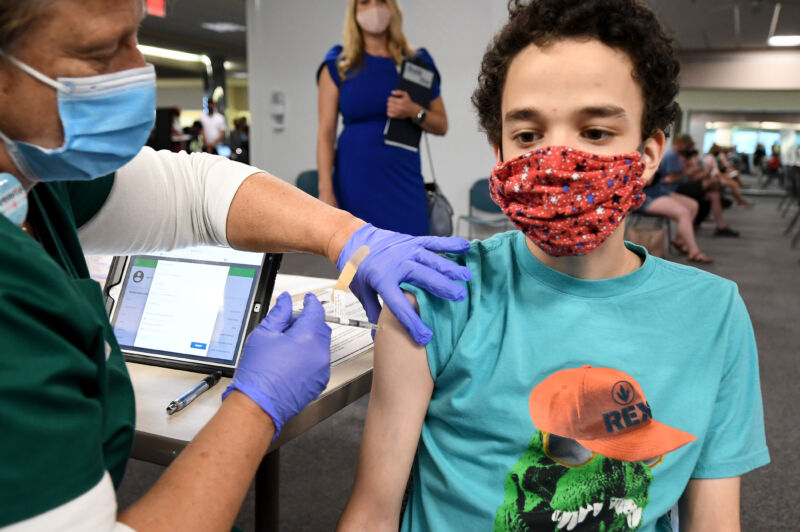Here’s how kids’ COVID vaccines are holding up in the real world amid omicron

Enlarge / A nurse gives a 16-year-old a COVID-19 vaccine. (credit: Getty | Sopa images)
New data on the real-world effectiveness of COVID-19 vaccines in children and teens largely mirrors what we've seen in adults so far: vaccine effectiveness is strong against the delta coronavirus variant but takes a significant hit when up against omicron. Time also erodes protection. But overall, the shots-particularly boosters-offer valuable protection against severe outcomes.
The data, published by the Centers for Disease Control and Prevention this week, drew on medical records from 10 states and only focused on vaccinations with the Pfizer-BioNTech vaccine. Researchers examined records of nearly 40,000 visits of non-immunocompromised children and teens to emergency departments and urgent care centers (ED and UC), as well as about 1,700 hospitalizations, all of which occurred between April 9, 2021, and January 29, 2022.
Expected waningAcross the delta and omicron eras, vaccine effectiveness of two doses against ED/UC visits was 83 percent in children 12 to 15, and 76 percent in teens 16 to 17. But those estimates only go up to five months after the two doses, and we know vaccine effectiveness wanes over time. After the five-month mark, those effectiveness estimates fell to 38 percent and 46 percent for ages 12 to 15 and 16 to 17, respectively.
Read 8 remaining paragraphs | Comments